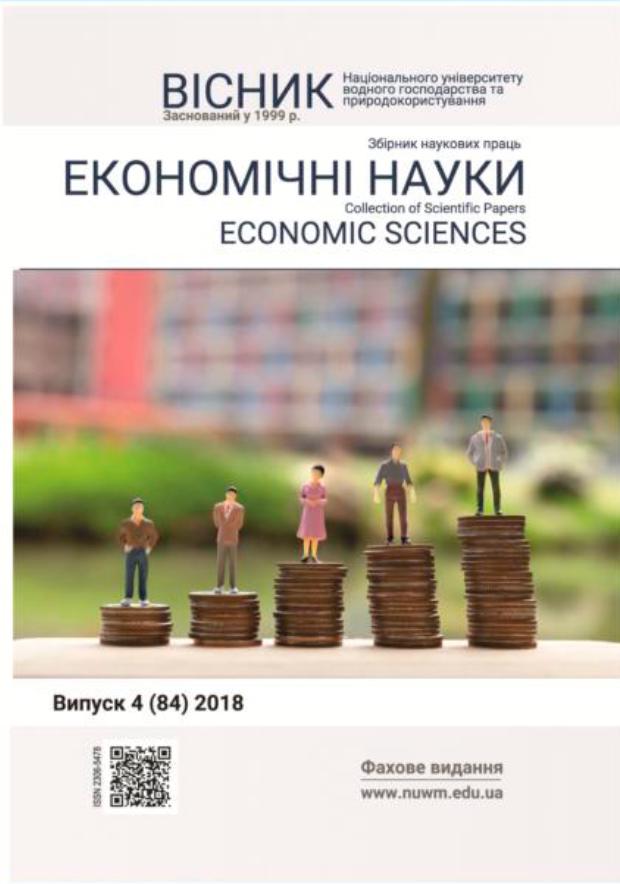HARMONIZATION OF INTERESTS OF SOCIAL AND LABOUR RELATIONS PARTIES BASED ON THE IMPLEMENTATION OF FLEXIBLE WORKING HOURS
DOI:
https://doi.org/10.31713/ve4201810Keywords:
stages Flexible Working Hours, working time, social partnership, social and labour relations.Abstract
Favourable schedule is able to meet the human needs of different levels and to contribute improving the results of each hired worker and, therefore, of the whole enterprise. However, today very little attention is devoted to the study of the potential of free working-time regimes in the context of ensuring the realization of the interests of employers and employees on the principles of social partnership. The regulation of working time at most domestic enterprises is based on the principles of paternalism. The practice where workers are not subject to a rigid schedule of working hours and are not under constant supervision is often perceived by employers ambiguously and often counterproductive. Therefore, the task is to study flexible forms of working time organization on the possibilities of their use in domestic organizations to harmonize the interests of employers and employees. Based on the study of foreign experience in regulating working hours of employees, the possibility of using flexible working time schedules at domestic enterprises as an instrument of social partnership is identified. The expediency of introducing modes of work organization based on flexibility as an alternative to hard working time, formed on the principles of paternalism, is substantiated. The basic conditions and benefits of introducing free time schedules for employers and for employees to harmonize their interests are identified. The main advantage of the flexible form of working time is creating a sense of the desired individual freedom and independence in decisionmaking. It is oriented primarily to the result of work and thus plays a strong motivating role in the pursuit of success and effective use of working time , which is one of the main preconditions for harmonizing the interests of the main parties of social and labour relations. The introduction of flexible working time regimes can solve a considerable number of tasks related to its optimization, resource conservation, competitive attractiveness of employers, and motivation of staff, and thus contribute to the harmonization of the needs of hired workers and the interests of business owners and society as a whole.References
Цыганова И. ФРГ: гибкие режимы работы. Человек и труд. 2008. № 2. С. 67–70.
Полянина, А. Мотивация свободным временем. Управление персоналом. 2008. № 1. С. 5.
Колот А. М. Мотивація, стимулювання і оцінка персоналу : навч. посібник. К. : КНЕУ, 1998. 224 с.
Тучков А. И. Экономика труда : учебное пособие. М. : ИКФ «ЭКМОС», 2001. 240 с.
Костюнина Г. М. Гибкие формы занятости: мировой опыт и практика Сингапура. Труд за рубежом. 2004. № 2. С. 95–110.
Ерохина Р. И., Самраилова Е. К. Анализ трудовых показателей на предприятии : учеб. пособие. М. : Издательство «МИК», 2000. 160 с.
Гиляровская Л. Т. Методология и методика системного анализа материального стимулирования труда в объединениях (предприятиях). Воронеж : Издательство Воронежского университета, 1985. 279 с.
REFERENCES:
Tsуhanova І. FRH: hіbkіe rezhіmу rabotу. Chelovek і trud. 2008. № 2. S. 67–70.
Polianіna, A. Motіvatsіia svobodnуm vremenem. Upravlenіe personalom. 2008. № 1. S. 5.
Kolot A. M. Motyvatsiia, stymuliuvannia i otsinka personalu : navch. posibnyk. K. : KNEU, 1998. 224 s.
Tuchkov A. І. Еkonomіka truda : uchebnoe posobіe. M. : ІKF «ЕKMOS», 2001. 240 s.
Kostiunіna H. M. Hіbkіe formу zaniatostі: mіrovoi opуt і praktіka Sіnhapura. Trud za rubezhom. 2004. № 2. S. 95–110.
Erokhіna R. І., Samraіlova E. K. Analіz trudovуkh pokazatelei na predprіiatіі : ucheb. posobіe. M. : Іzdatelstvo «MІK», 2000. 160 s.
Hіliarovskaia L. T. Metodolohіia і metodіka sіstemnoho analіza materіalnoho stіmulіrovanіia truda v obedіnenіiakh (predprіiatіiakh). Voronezh : Іzdatelstvo Voronezhskoho unіversіteta, 1985. 279 s.

